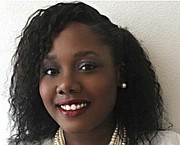By Dr Tamika Ferguson
Tooth decay is the most common chronic childhood disease. It is five times more common than asthma and 20 times more common than diabetes. If left untreated, it can destroy your child’s teeth, disrupt your child’s growth and development, and have a long-lasting effect on your child’s overall general health.
Early childhood caries (ECC) is a term that can be used to describe dental caries/decay in preschool children usually seen at the age of two years and above.
Children who frequently consume sugary liquids for example breast milk, formula, fruit juice, etcetera, for long periods of time run a great risk of suffering from ECC.
Early childhood caries is an infectious disease that can begin from as early as the teeth start to erupt and can cause great pain to the child. The most common presenting pattern of ECC is often called “nursing caries”, “nursing bottle caries”, or “bottle mouth caries” as inappropriate nursing and baby bottle use are often the cause.
Usually, when a child has ECC there is a common pattern detected where the upper front teeth and upper first primary molars are decayed but the lower teeth are usually spared-being either entirely caries free or only mildly affected due to protection from the tongue.
Early childhood caries has harmful effects on the health and quality of life of the child and can also affect the family’s finances in order to treat the condition. ECC can affect speech and communication, eating and dietary nutrition, sleeping, learning, and playing. Not to mention the direct consequences which are pain and infection.
A lot of parents often ask, “Why are my child’s teeth like this?” One of the main reasons for ECC is the child’s exposure to sugary drinks. A major concern is letting your child fall asleep with the bottle in his/her mouth. Feeding while the child is asleep allows liquid to be present in the mouth for a prolonged period.
Prevention of ECC in infants
Your child should visit a dentist no later than their first birthday. After feeding your child, wipe their mouths with a clean wet washcloth. Further, once the first tooth appears, begin brushing twice daily with an age-appropriate toothbrush and a smear of toothpaste. Nighttime bottle feeding should stop. If the child has to suckle on the bottle it should be water only. If your child does not like water gradually dilute the juice over a period of a few weeks until contents become just water.
Prevention of ECC in toddlers and young children
You should encourage your child to drink from a cup by their first birthday. Water should be placed in sippy cups throughout the day except during mealtime.
If they are allowed to drink juice consistently throughout the day, your child’s teeth will be coated in sugar, which we want to avoid. Your child should brush twice daily using a pea-sized amount of toothpaste. Further, parents should monitor their children while they are brushing their teeth and assist if needed. In addition, good dietary habits need to be developed early. If your child has to snack let it be something nutritious. Frequent snacking on the wrong types of food leads to decay.





Comments
Use the comment form below to begin a discussion about this content.
Sign in to comment
Or login with:
OpenID